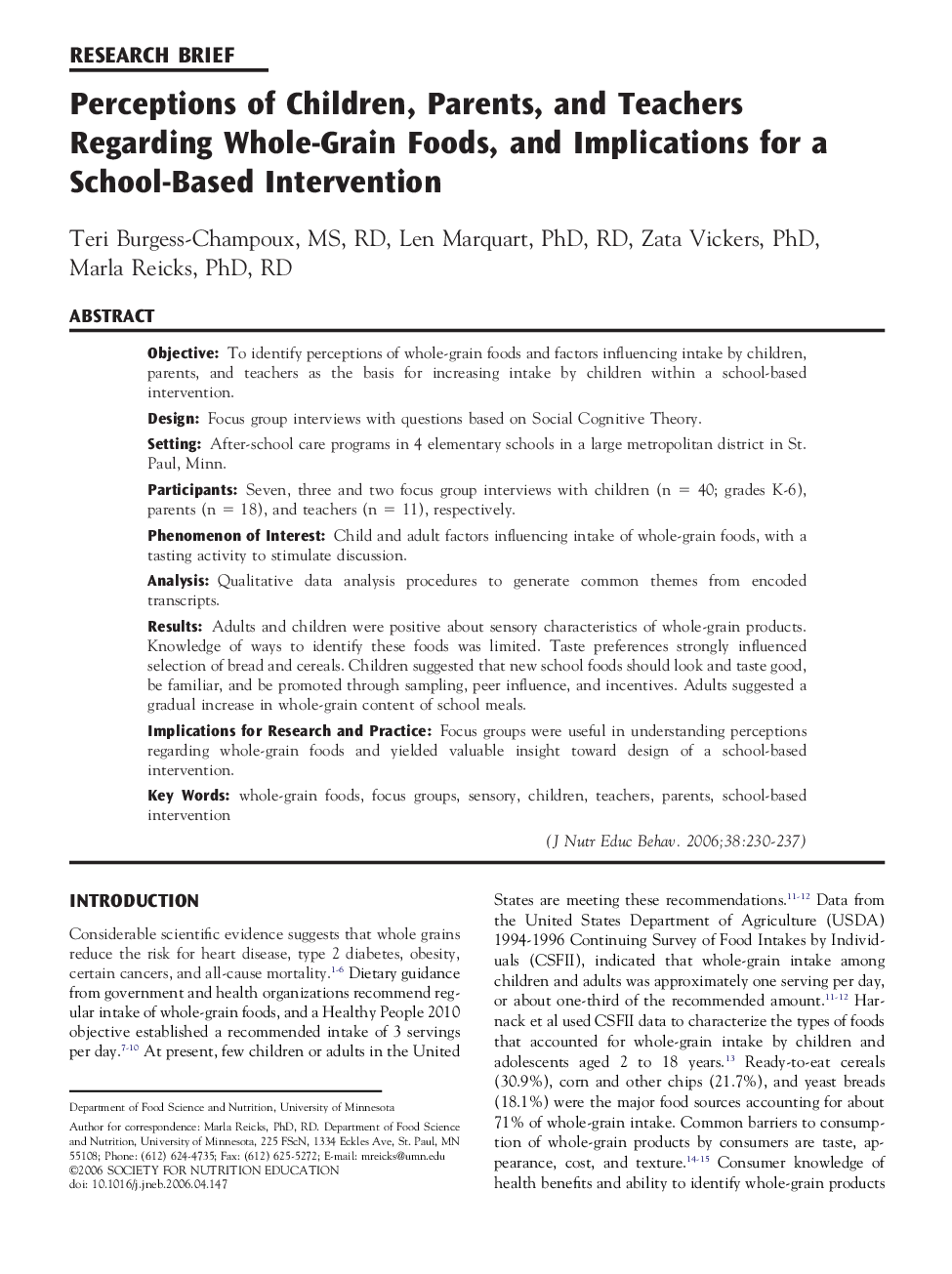| Article ID | Journal | Published Year | Pages | File Type |
|---|---|---|---|---|
| 363405 | Journal of Nutrition Education and Behavior | 2006 | 8 Pages |
ObjectiveTo identify perceptions of whole-grain foods and factors influencing intake by children, parents, and teachers as the basis for increasing intake by children within a school-based intervention.DesignFocus group interviews with questions based on Social Cognitive Theory.SettingAfter-school care programs in 4 elementary schools in a large metropolitan district in St. Paul, Minn.ParticipantsSeven, three and two focus group interviews with children (n = 40; grades K-6), parents (n = 18), and teachers (n = 11), respectively.Phenomenon of InterestChild and adult factors influencing intake of whole-grain foods, with a tasting activity to stimulate discussion.AnalysisQualitative data analysis procedures to generate common themes from encoded transcripts.ResultsAdults and children were positive about sensory characteristics of whole-grain products. Knowledge of ways to identify these foods was limited. Taste preferences strongly influenced selection of bread and cereals. Children suggested that new school foods should look and taste good, be familiar, and be promoted through sampling, peer influence, and incentives. Adults suggested a gradual increase in whole-grain content of school meals.Implications for Research and PracticeFocus groups were useful in understanding perceptions regarding whole-grain foods and yielded valuable insight toward design of a school-based intervention.
